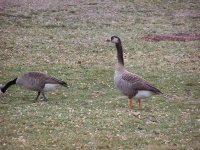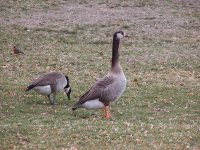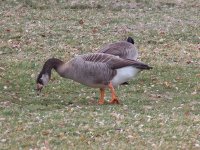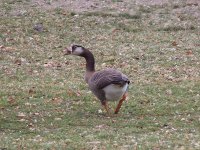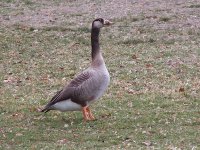I was walking along a lakeside path near my house earlier today, and I passed a gaggle of Canadian Geese. There are always geese there, so I took no special notice. I looked out into the water, and one goose caught my eye. Its head was different. It looked like a duck's head. Soon it stared to fly, and when its legs broke water, I saw that they were orange and had huge feet, like a duck! Later I reteurned here with my camera, and got a very good look at it, and some pretty good pictures. I am not very educated in the study of birds, but I did fairly extencive research on the topic, and I looked at pictures of basically ever species of known geese, and nothing seemed to match, or even come close. What I am wondering is if it is possible for Canadian Geese to interbreed in the wild with any ducks (based on where I am, probably Mallard Ducks) and if so, if it is common. I just want to know if I've made a discovery or if I'm wasting my time. If you can shed any light at all on this subject, please make a post.
Thanks!
P.S. I have a 40 second video of the Doose in action, and am willing to email it to any person interested.
Thanks!
P.S. I have a 40 second video of the Doose in action, and am willing to email it to any person interested.




